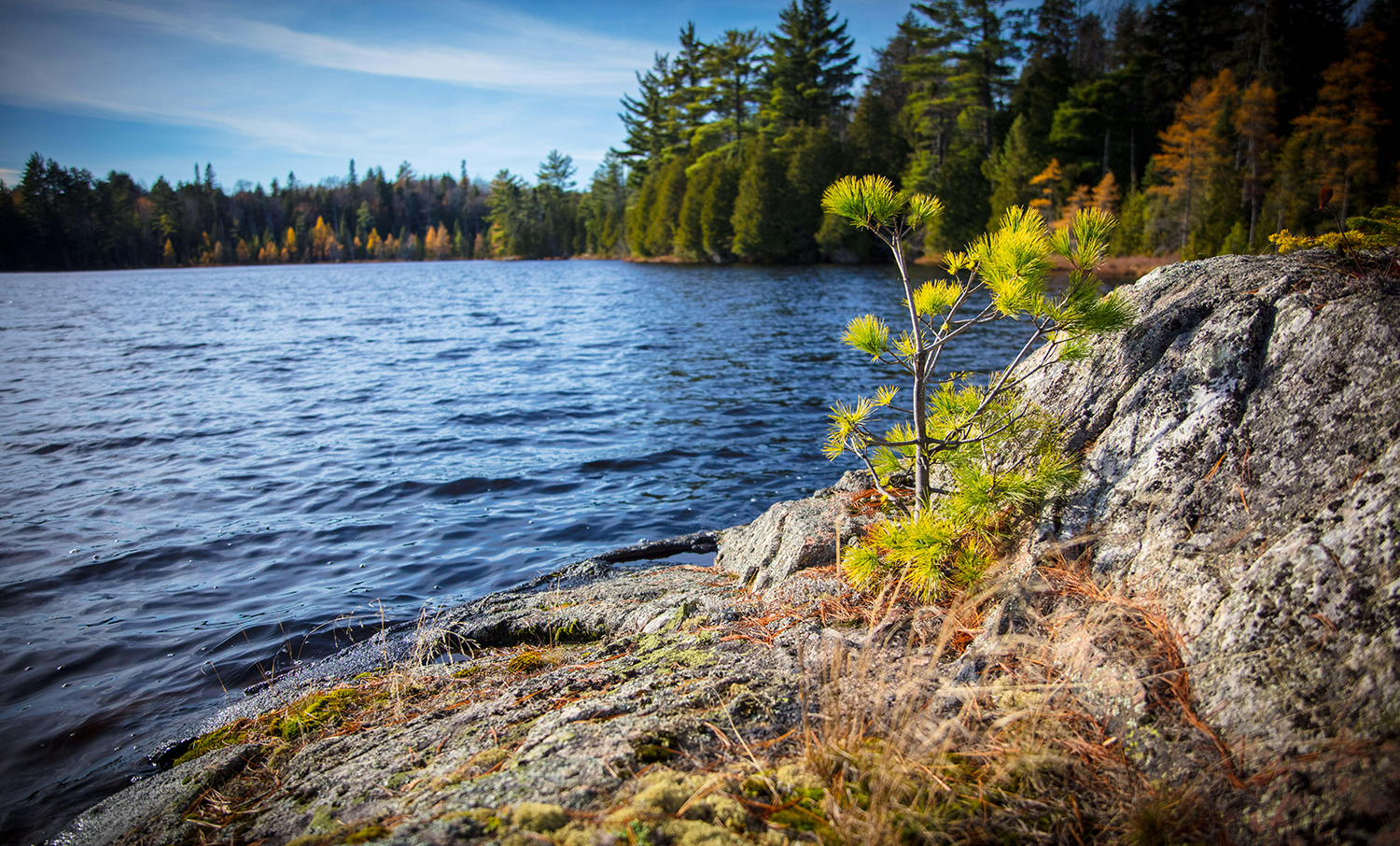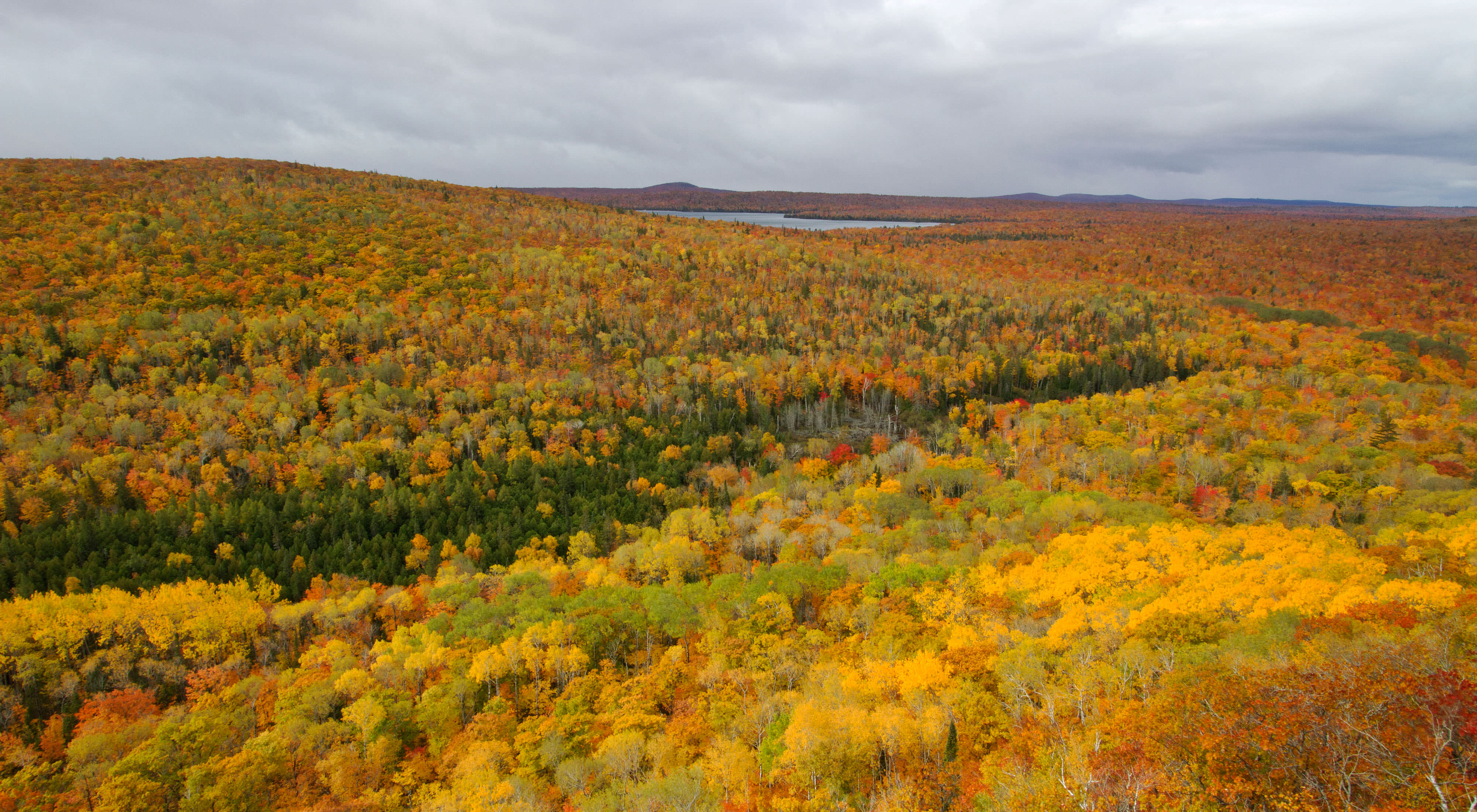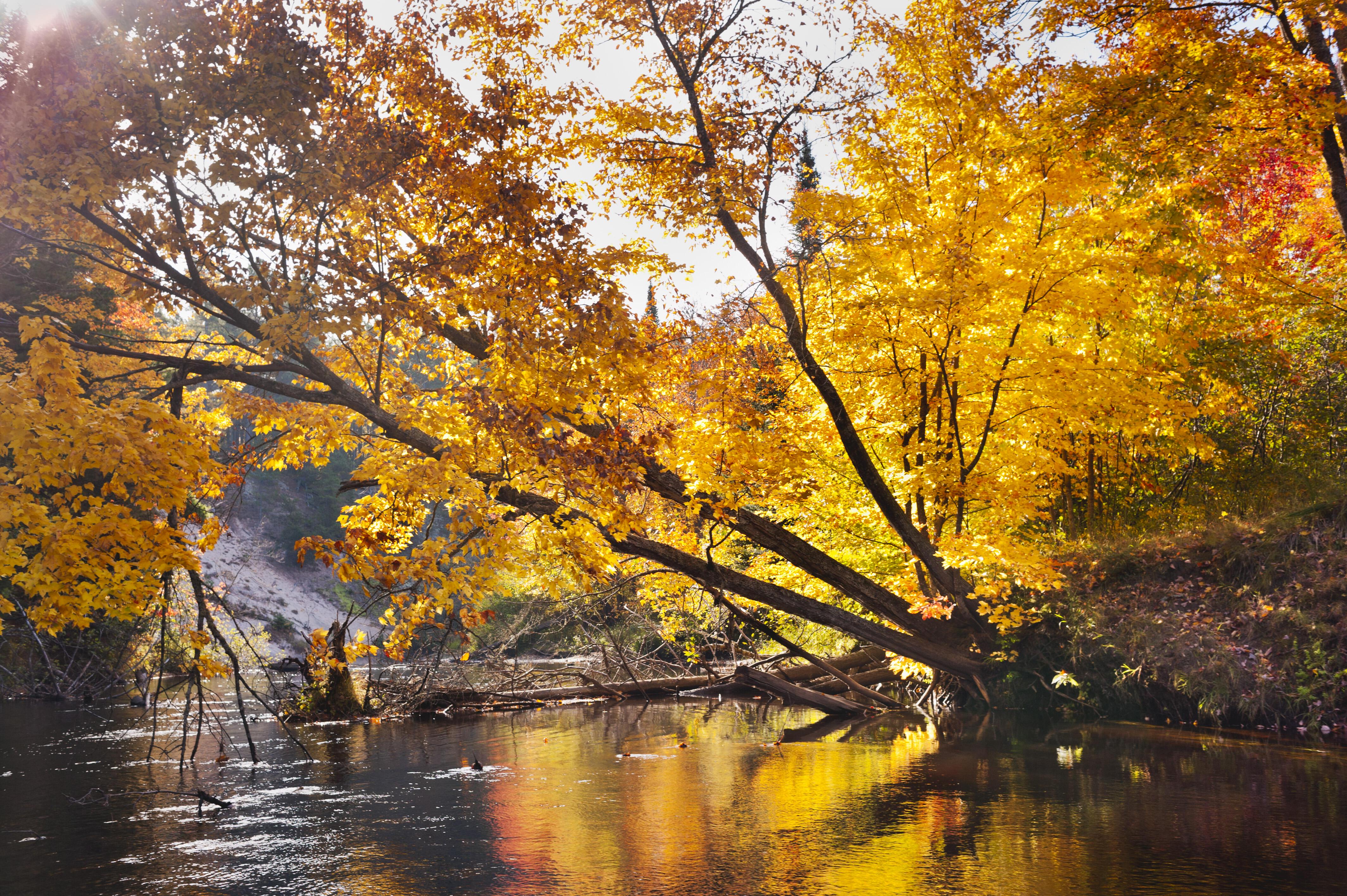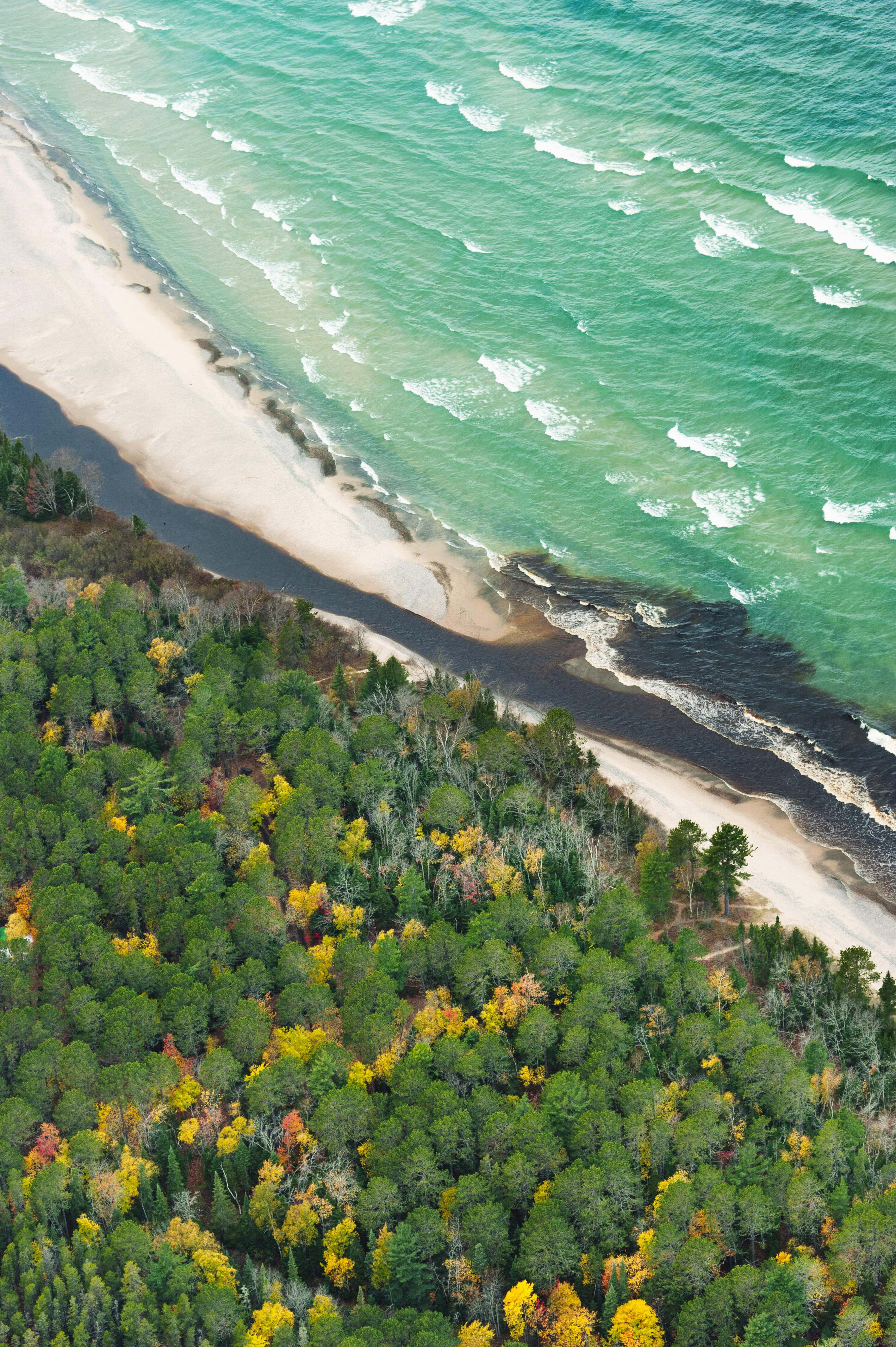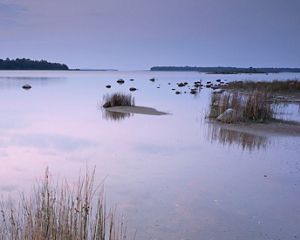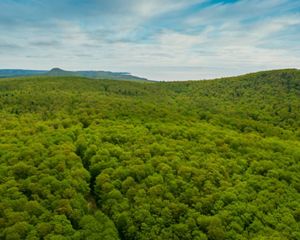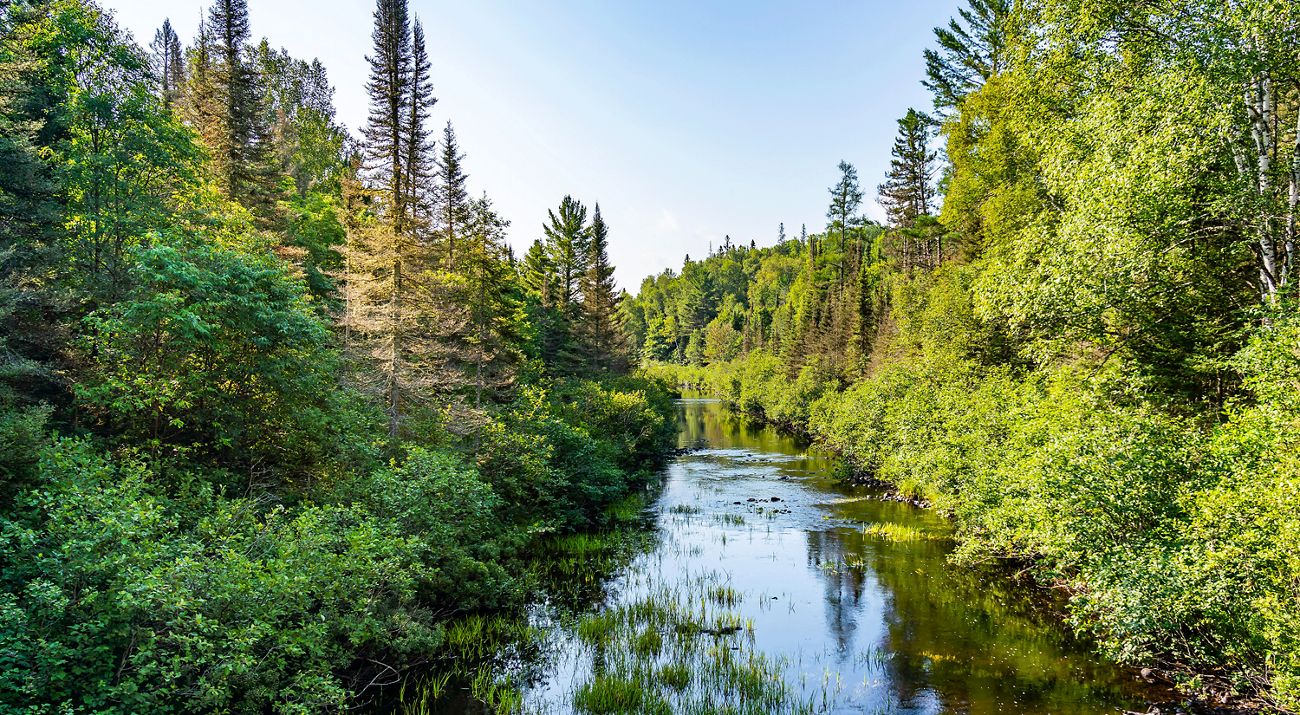
Climate Change in Michigan
TNC is taking meaningful action to address the impact of climate change on Michigan and the Great Lakes.
We live in an important time—climate action is urgently needed. However, it is also an opportunity for innovation. Conserving healthy lands and waters also supports their ability to soak up carbon from the atmosphere—the greenhouse gases that are contributing to the world's climate shift.
By making nature a part of the solution, we can also achieve a multitude of benefits for people and nature: connecting communities with clean and affordable energy, protecting vital forests and rivers, informing equitable access to natural resources, supporting healthy, livable cities and more.
How Climate Change Will Impact Michigan
We are already seeing the consequences of increasing temperatures, from more intense storms to widespread habitat loss in Michigan. But there is hope—and it calls for us to work with nature to prepare our state for a changing climate.
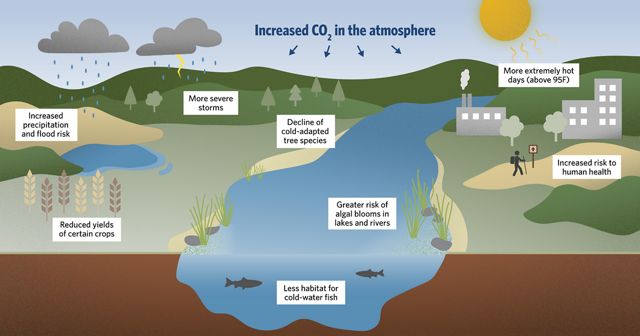
Graphic of a town, water, crops and nature that outline climate change impacts: Increased CO2 in the atmosphere, increased precipitation and flood risk, more severe storms, decline of cold-adapted tree species, more extremely hot days (above 95F), reduced yields of certain crops, greater risk of algal blooms in lakes and rivers, increased risk to human health, less habitat for cold-water fish.
Climate Solutions in Michigan
Carbon neutrality, or “net-zero” carbon emissions, is a global objective. Nature can reduce more than one-third of the emissions needed to hit this goal if countries invest in carbon-storing forests, grasslands, wetlands and farmlands. By incorporating nature into our solutions here in the Great Lakes, we can make a meaningful and lasting contribution to climate balance.

Demonstration
Our work in sustainable forest management, coastal restoration, green stormwater infrastructure, soil health and water quality are just some of the ways we help people and nature prepare to meet the impacts of a changing climate.

Leadership
TNC leads through the real-world expertise we have gained over decades of on-the-ground conservation in Michigan. We work collaboratively to advance science-based strategies that help Great Lakes communities thrive.

Policy
We draw on our extensive experience in natural climate solutions and public-private collaboration to provide policy leaders with science-based knowledge and impactful solutions.
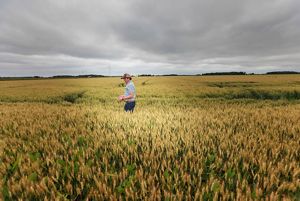
Engagement
Private-sector innovation is essential to meet the climate challenge. We work with leading companies and business organizations in Michigan and beyond—especially in the energy, industrial, agriculture and forestry sectors—to promote climate dialogue and best practices.
Protecting Coastal Wetlands
Coastal wetlands are important to improving climate resilience in the Great Lakes. They provide communities and infrastructure with protection from storms and prevent flooding, while also helping to keep water clean and providing food and shelter to migratory birds. On the shores of Lake Erie in the North Maumee Bay, we are advancing plans to restore an eroded marsh using innovative techniques such as floating islands of vegetation to protect the shoreline and provide open water habitat.
Erie Marsh represents 11% of the remaining coastal wetlands in southeast Michigan. Its size is made even more significant by the fact that the Great Lakes region has lost approximately half of its wetlands over the last two centuries. At Erie Marsh, TNC is advancing a model for coastal restoration at a scale that can be replicated across the Great Lakes, with important system-wide benefits to water quality and ecosystem resiliency.

The Erie Marsh project is restoring a critical physical and hydrological connection between the preserve and Lake Erie. Native fish and other aquatic life are now accessing the area for breeding and spawning for the first time in more than 60 years. This project is also improving the habitat for the tens of thousands of nesting and migratory birds that rely on Erie Marsh every season, and will encourage recreational use for wildlife viewing and education.
Capturing Carbon in Michigan Forests
In a changing climate, forests represent a powerful carbon “sink” that can offset greenhouse gas emissions. All of our forest reserves in Michigan are managed to improve forest health and absorb additional carbon above what the forest would store without sustainable forest management practices.
Owned by the same family for nearly 60 years, the 10,549-acre Slate River Forest Reserve highlights a premier example of a sustainably managed northern hardwood forest, with mature, diverse trees including maple, hemlock, red pine and aspen. TNC was the only conservation organization invited to bid on this property when it was put on the market in 2021. If we had not acquired it, it would have been purchased and managed primarily for its timber value.
Now, TNC can continue the tradition of sustainable management and resilience at the Slate River Forest Reserve. We estimate we can increase carbon sequestration and storage by approximately 450,000 metric tons of carbon dioxide equivalent (CO2e) above baseline, over the next 10 years.
Climate-Resilient Forests
Click on the boxes to explore how we are working to ensure Michigan forests are healthy and resilient to a changing climate.
We are expanding the practices explored above to privately owned lands, which make up 63% of Michigan’s timberland, by recruiting participants into TNC’s American Forest Carbon Initiative, a partnership with the American Forest Foundation.
- TNC’s Working Woodlands initiative assists private landowners (of properties greater than 2,000 acres) with forest management planning, becoming FSC-certified and enrolling in carbon markets.
- The Family Forest Carbon Program is an option for owners of smaller properties, helping them improve management practices and grouping properties to qualify them for carbon incentives.
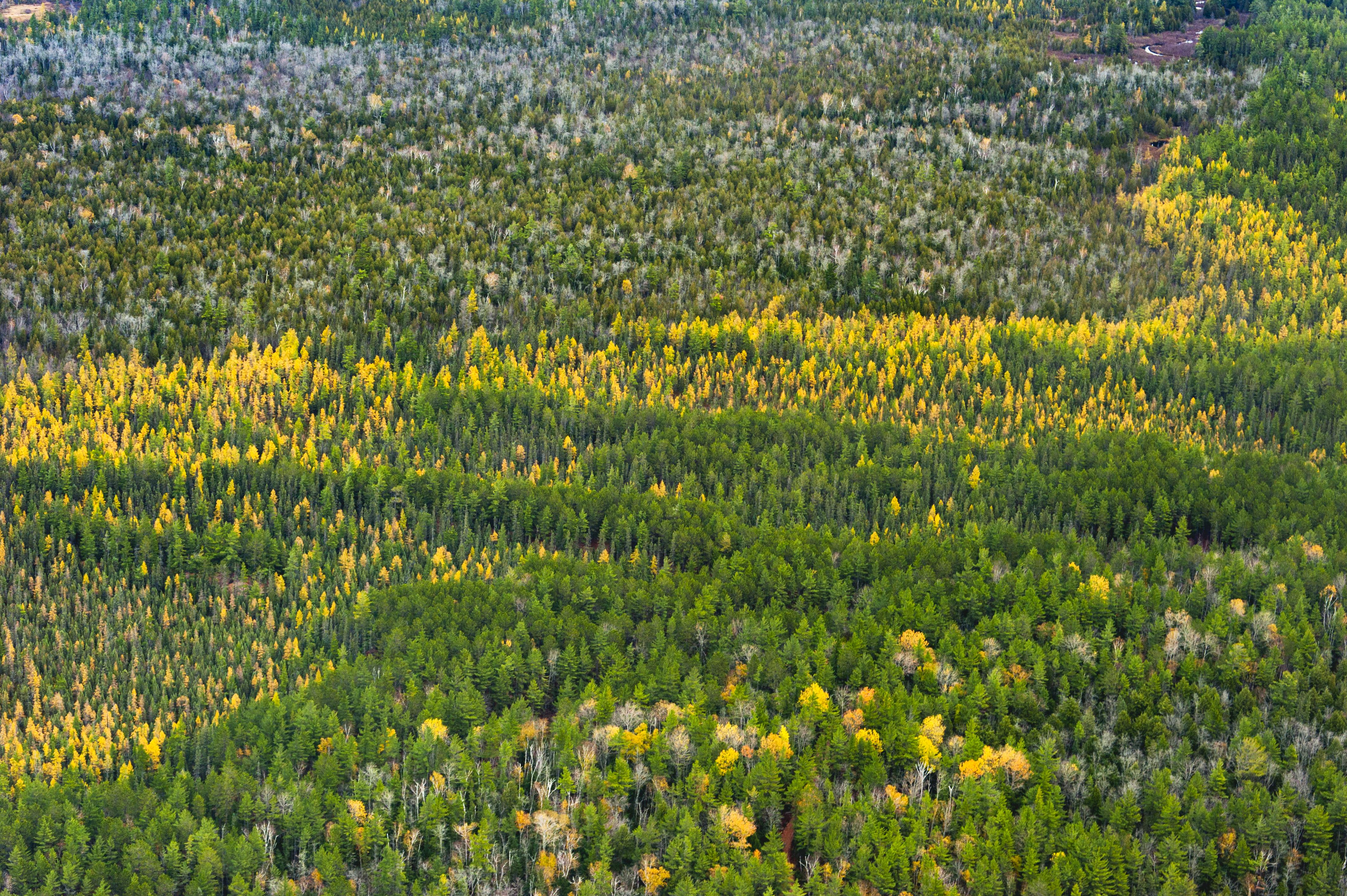
Michigan Healthy Climate Plan
In 2020, the Governor of Michigan announced the Michigan Healthy Climate Plan, established the Climate Solutions Council and set the statewide carbon neutrality goal for 2050. TNC was invited to participate in two council workgroups, giving us the opportunity to provide input on natural climate solutions policy and practices that the council can recommend to the governor to mitigate carbon emissions. Our connections with many state agencies mean that we can also directly engage with the State of Michigan to encourage climate efforts as the state works to meet U.S. Climate Alliance goals.
Manufacturing Change: Reducing Emissions and Adopting Renewable Energy
The Michigan Manufacturers Association (MMA) and TNC have joined forces to advance the conversation around improving energy efficiency, reducing carbon emissions and adopting renewable energy technologies within Michigan’s manufacturing sector.
This partnership kicked off with a four-part series of webinars featuring sustainability experts and industry representatives who are leading the way toward making their enterprises cleaner and greener. The series focused on providing manufacturers—particularly small and mid-sized businesses without dedicated sustainability teams on staff—with practical insights into voluntary actions they can take to lower their industrial emissions, while staying competitive and attracting and retaining talented workers.
Both TNC and MMA hope to continue this innovative partnership with future joint events. The State of Michigan’s new plan, MI Healthy Climate Plan, released in April 2022, emphasizes the urgency of “greatly accelerating ” the decarbonization of Michigan’s economy—and puts pressure on manufacturers to act now.
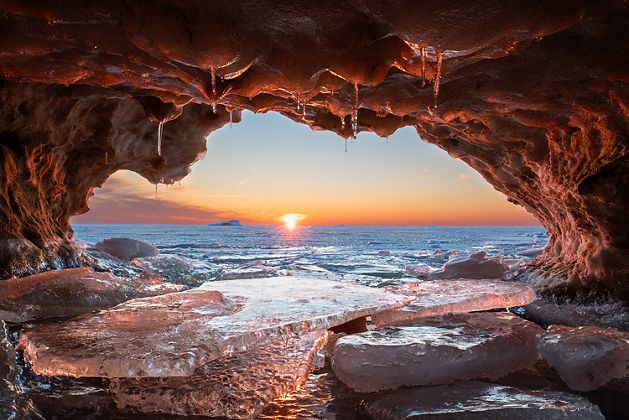
Stay Connected to Our Work
Sign up to receive monthly conservation news and updates from Michigan.
